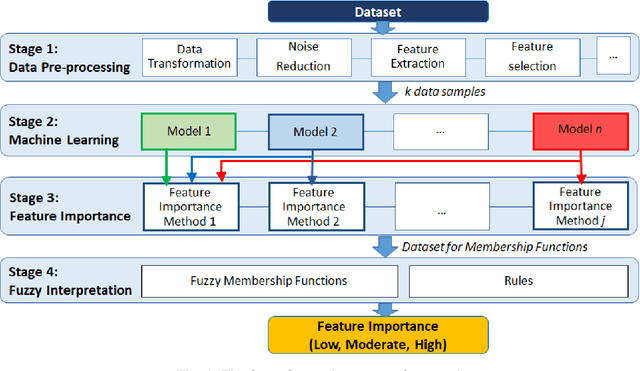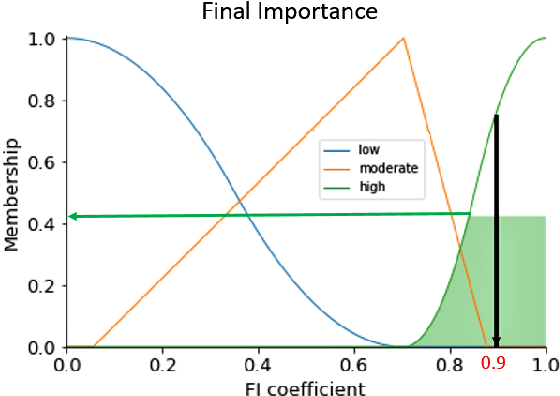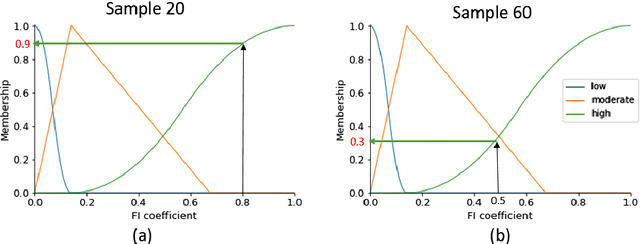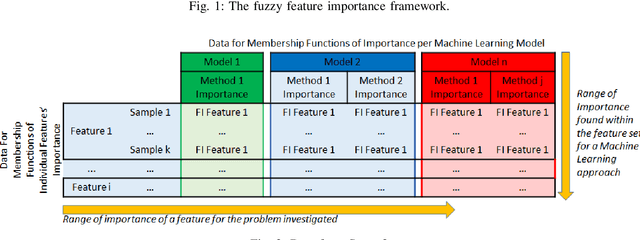Mechanistic Interpretation of Machine Learning Inference: A Fuzzy Feature Importance Fusion Approach
Paper and Code
Oct 22, 2021



With the widespread use of machine learning to support decision-making, it is increasingly important to verify and understand the reasons why a particular output is produced. Although post-training feature importance approaches assist this interpretation, there is an overall lack of consensus regarding how feature importance should be quantified, making explanations of model predictions unreliable. In addition, many of these explanations depend on the specific machine learning approach employed and on the subset of data used when calculating feature importance. A possible solution to improve the reliability of explanations is to combine results from multiple feature importance quantifiers from different machine learning approaches coupled with re-sampling. Current state-of-the-art ensemble feature importance fusion uses crisp techniques to fuse results from different approaches. There is, however, significant loss of information as these approaches are not context-aware and reduce several quantifiers to a single crisp output. More importantly, their representation of 'importance' as coefficients is misleading and incomprehensible to end-users and decision makers. Here we show how the use of fuzzy data fusion methods can overcome some of the important limitations of crisp fusion methods.
 Add to Chrome
Add to Chrome Add to Firefox
Add to Firefox Add to Edge
Add to Edge